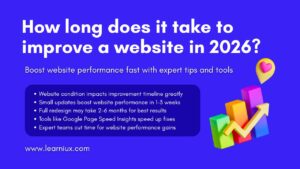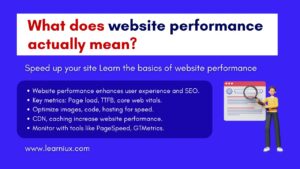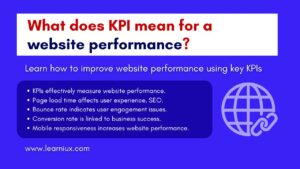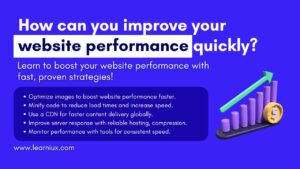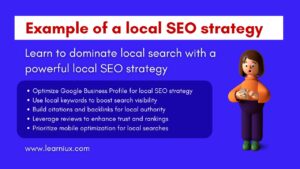Introduction
Search engine optimization is a cornerstone of small businesses that aims to grow their online presence without breaking the bank. For small businesses, SEO provides a way to compete with larger companies by attracting organic traffic through search engines like Google. However, limited budgets often make it challenging to invest in expensive tools, agencies, or advertising campaigns. This article explores practical, cost-effective strategies for small business SEO, focusing on actionable steps that deliver results without requiring significant financial resources. From keyword research to content creation and link building, we’ll cover how small businesses can effectively prioritize SEO while staying within budget.
Why SEO is Important for Small Businesses Now
In today’s digital landscape, search engines are the primary way consumers find businesses. Google processes billions of searches every day, and a strong SEO strategy ensures that small businesses appear when potential customers are searching for relevant products or services. Recent trends emphasize mobile-first indexing, where Google prioritizes mobile-friendly websites and user experience signals like page speed and easy navigation. For small businesses, ranking high in search results can drive consistent traffic without the recurring costs of paid advertising. Staying up to date with these trends allows small businesses to align their SEO efforts with what search engines value most, maximizing impact on a small budget.
Common Budget Constraints in Small Business SEO
Small businesses often work with limited resources, making it difficult to afford premium SEO tools or hire specialized agencies. Common challenges include a lack of funding for paid advertising, limited staff to manage SEO tasks, and minimal access to advanced analytics platforms. For example, large companies can spend thousands on comprehensive SEO audits or link-building campaigns, while small businesses have to rely on free or low-cost options. Understanding these limitations helps you choose strategies that are both effective and affordable, such as focusing on organic growth through content and local optimization.
Key Strategies for SEO for Small Businesses
To succeed in SEO without spending a fortune, small businesses should focus on basic strategies that require time and effort rather than financial investments. These strategies lay the foundation for long-term success and can be implemented at minimal cost.
Keyword Research for Small Business SEO
Keyword research is the backbone of any SEO strategy. It involves identifying the terms that potential customers are using to search for products or services. For small businesses, free tools like Google Keyword Planner and AnswerThePublic are invaluable. These platforms provide insight into search volume and competition for keywords. Long-tail keywords (specific phrases like “affordable bakery in Mumbai”) are especially useful for small businesses. They face less competition and attract highly targeted traffic. To begin, create a list of terms related to your business, check their search volume, and prioritize those with medium volume and low competition. This approach ensures that your content matches what your audience is searching for.
On-Page Optimization in Small Business SEO
On-page SEO involves optimizing individual web pages for higher rankings. Key elements include title tags, meta descriptions, and content structure. Title tags should be concise, include primary keywords (e.g., “Small Business SEO Tips”), and be under 60 characters. Meta descriptions, while not a direct ranking factor, should be engaging and under 160 characters to encourage clicks. Use header tags (H1, H2, H3) to clearly organize content, making it easy for both users and search engines to understand. For example, a small business website should ensure that each page has a unique title, relevant keywords, and user-friendly content. Tools like Yoast SEO (free version) can guide beginners in effectively optimizing these elements.
Content Creation Tips for Small Business SEO
Content is a powerful driver of SEO success. For small businesses, creating high-quality, relevant content doesn’t require a big budget. Start a blog to solve customer problems, such as “how to choose the best local plumber” for a plumbing business. Repurpose existing content, such as turning blog posts into social media snippets or videos, to increase reach. Free resources like Google Trends can help spark content ideas by showing what’s popular in your industry. Focus on evergreen content (topics that stay relevant over time) to reduce the need for frequent updates. Consistency is key; even one well-researched post every month can build authority over time.
Free and Low-Cost Tools for SEO for Small Businesses
Free or affordable tools are essential for small businesses looking to optimize their SEO efforts without spending a fortune. These tools provide insights and functionality comparable to premium options when used strategically.
Essential Free Tools for Small Business SEO
Google Analytics and Google Search Console are essential for tracking performance and identifying opportunities. Google Analytics monitors website traffic, user behavior, and conversions, helping businesses understand what’s working. Search Console reveals which keywords drive traffic and flags technical issues like broken links. Ubersuggest, another free tool, offers keyword suggestions, competitor analysis, and basic site audits. These tools don’t require any financial investment but provide robust data to guide your SEO strategy. They take minimal time to set up and give you instant insight into your website’s performance.
Affordable Paid Alternatives to Small Business SEO
While free tools are powerful, some low-cost paid tools offer additional features. For example, Ahrefs and SEMrush have free or low-cost tiers that provide limited but valuable access to keyword research and backlink analysis. Tools like Screaming Frog (free for up to 500 URLs) can crawl your website to identify technical issues. When choosing paid tools, look for ones with scalable plans, which allow you to start small and upgrade as your budget grows. These tools can help you scale your small business SEO efforts without a large upfront investment.
Building Backlinks on a Budget for Small Businesses SEO
Backlinks (links from other websites to your website) are an important ranking factor. For small businesses, it is possible to get backlinks without paying with the right approach.
Guest Posting Strategies in Small Business SEO
Guest posting involves writing articles for other websites in exchange for a link back to your site. Start by identifying blogs in your niche that accept guest posts. Use Google searches like “write for us + [your industry]” to find opportunities. Create a brief pitch that highlights your skills and a relevant topic idea. For example, you might write about “budget-friendly home workouts” for a local gym fitness blog. Make sure the host site is reputable to maximize SEO benefits. This strategy builds authority and backlinks without any direct cost.
Local Directories and Small Business SEO
Local directories are a goldmine for small business SEO. Listing your business on Google My Business is free and increases visibility in local search results and Google Maps. Other free directories like Yelp or Yellow Pages can also drive traffic. Make sure your business name, address, and phone number (NAP) are consistent across all listings to avoid confusing search engines. Adding photos and promoting customer reviews on these platforms will further boost your local SEO presence, all for free.
Measuring Success in Small Business SEO
Tracking progress is crucial to ensuring that your efforts are succeeding. Small businesses can measure SEO success using free tools and clear metrics.
Key metrics for small business SEO
Focus on organic traffic (visitors from search engines), keyword rankings, and conversion rates (e.g., form submissions or purchases). Tools like Google Analytics show traffic trends, while Search Console tracks keyword performance. For example, if your ranking for “small business SEO services” improves from page 3 to page 1, that’s a sign of progress. Conversions are the most important, as they are directly tied to business goals. Set goals in Google Analytics to track actions like contact form submissions.
Free Analytics Setup for Small Business SEO
Setting up Google Analytics and Search Console is easy. Create a free account for everyone, add your website, and verify ownership (usually by adding a code snippet to your site). Use analytics to monitor traffic sources and user behavior, and use Search Console to check for crawl errors or keyword opportunities. Review this dashboard regularly to adjust your strategy. For example, if a blog post is driving significant traffic, create similar content to capitalize on its success.
Common Mistakes to Avoid in Small Business SEO
Avoiding common pitfalls saves time and resources, making your SEO efforts more effective.
Neglecting Mobile Optimization in Small Business SEO
With more than half of searches coming from mobile devices, a website that isn’t mobile-friendly can hurt your rankings. Use free tools like Google’s Mobile-Friendly Test to test your site. Make sure it uses responsive design, meaning it adapts to different screen sizes. Simple improvements like increasing the font size or making navigation easier can improve the user experience. Many website builders, like WordPress with free themes, offer responsive templates, making this an affordable solution for small businesses.
Neglecting Local Small Business SEO
For businesses that serve specific areas, local SEO is extremely important. Failing to optimize for local searches limits visibility. Beyond Google My Business, participate in local community platforms or forums to build relevance. For example, a cafe in Pune could join local foodie groups on social media to share updates and get mentions. Use location-specific keywords like “Pune bakery” in your content to attract nearby customers. These efforts take time but don’t require a huge financial investment.
Conclusion
Small business SEO is a powerful way to grow your online presence without relying on expensive advertising. By focusing on keyword research, on-page optimization, and content creation, businesses can build a strong foundation. Free tools like Google Analytics and Search Console provide valuable insights, while guest posting and local directories offer affordable link-building opportunities. Avoiding mistakes like ignoring mobile optimization or local SEO will ensure that your efforts are effective. Start small, implement one strategy at a time, and track your progress to refine your approach. Get started today by setting up a Google My Business profile or researching keywords, each step taking you closer to better visibility and more customers.
FAQs
What is the most cost-effective way to start small business SEO?
Starting small business SEO on a budget involves doing keyword research using free tools like Google Keyword Planner to identify relevant terms. Focus on long-tail keywords that are less competitive and attract targeted traffic. Optimize your website’s title tag, meta description, and headers to include these keywords. Create high-quality, user-focused content like blog posts that address customer needs. Take advantage of Google My Business for local visibility, which is free and effective. Monitor performance regularly with both free tools like Google Analytics and Search Console. Avoid paid advertising initially and focus on organic strategies. Consistency in these efforts builds a strong foundation without significant overhead. This approach maximizes results while keeping costs low.
Why is mobile optimization important for small business SEO?
Mobile optimization is important for small business SEO because more than half of searches occur on mobile devices. Google’s mobile-first indexing prioritizes mobile-friendly websites for rankings. A non-responsive site can lead to poor user experience, increased bounce rates, and hurt rankings. Use free tools like Google’s Mobile-Friendly Test to assess your site. Make sure your website uses a responsive design, adapting to different screen sizes. Simple improvements like larger fonts and streamlined navigation improve usability. Free website builders like WordPress offer responsive themes, making optimization affordable. Mobile-friendly sites also increase customer trust and engagement. Ignoring this can significantly limit your visibility. Prioritizing mobile ensures broader reach and better SEO performance.
How can small businesses find keywords for SEO without paid tools?
Small businesses can use free tools like Google Keyword Planner and AnswerThePublic to find relevant keywords. Start by brainstorming terms related to your products or services. Enter these into Keyword Planner to see search volume and competition. Focus on long-tail keywords like “affordable pet grooming in Delhi,” which are easy to rank for. Explore Google’s “People Also Ask” section for content ideas. Analyze competitors’ websites to identify targeted keywords. Use Ubersuggest for additional keyword suggestions and trends. These tools cost nothing but provide valuable insights. Update your keyword list regularly to stay relevant. This approach ensures effective keyword research without a financial investment.
What role does content play in small business SEO?
Content is the cornerstone of small business SEO, driving organic traffic and building authority. High-quality blog posts, guides, or FAQs about customer problems attract visitors. Use keywords naturally in your content to improve search rankings. Evergreen content like “How to Choose a Local Contractor” stays relevant and updates less frequently. Repurpose content into social media posts or videos to increase reach. Free tools like Google Trends can inspire timely topics. Engaging content encourages users to spend more time on your site, increasing SEO signals. Consistency, even if it’s just one post per month, will pay off over time. Quality content is a budget-friendly way to increase visibility.
How can small businesses build backlinks without spending money?
Building backlinks without spending money involves strategic outreach and local engagement. Start by guest posting on reputable blogs in your niche, offering valuable content in return for a link. Find opportunities using “Write for us + [your industry].” List your business on free directories like Google My Business and Yelp, to ensure consistent NAP (name, address, phone) details. Participate in local community forums or social media groups to get mentions. Partner with local businesses for reciprocal linking opportunities. Create shareable content like infographics to attract natural links. These methods take time but have no direct cost. Quality backlinks improve your site’s authority and ranking.
What are the best free tools for SEO for small businesses?
Free tools like Google Analytics, Google Search Console, and Ubersuggest are essential for SEO for small businesses. Google Analytics tracks website traffic, user behavior, and conversions, providing insights into performance. Search Console reveals keyword rankings, crawl errors, and indexing issues. Ubersuggest provides keyword ideas, competitor analysis, and basic site audits. Google Trends helps identify trending topics for content. These tools are free, easy to set up, and provide robust data. Use them to monitor progress and adjust your strategy. For example, Search Console can highlight underperforming pages for optimization. Regular use ensures that you get the information you need without spending money.
How does local SEO benefit small businesses on a budget?
Local SEO increases visibility without a high cost for small businesses targeting nearby customers. Optimizing Google My Business with accurate descriptions, photos, and customer reviews increases local search rankings. Use location-specific keywords like “Mumbai Coffee Shop” in your content. List your business in free directories like Yelp or local chambers of commerce. Build relevance by interacting with local online communities. Consistent NAP details across platforms prevent search engine confusion. Local SEO increases foot traffic and targeted leads, which is ideal for budget-conscious businesses. It’s a cost-effective way to compete with larger companies. It takes less time to set up a profile but yields significant results.
What SEO mistakes should small businesses avoid?
Small businesses should avoid common SEO mistakes to maximize their efforts. Ignoring mobile optimization can hurt rankings due to Google’s mobile-first approach. Ignoring local SEO limits visibility in nearby searches. Overuse of keywords or “keyword stuffing” makes content look unnatural and can lead to penalties. Failure to track performance with tools like Google Analytics results in missed optimization opportunities. Not updating content regularly can lead to a loss of relevance. Avoid low-quality backlinks from spammy sites, as they damage credibility. Omitting user experience improvements, such as slow page speed, drives visitors away. Focus on quality, relevance, and consistency to ensure effective SEO.
How can small businesses measure SEO success on a budget?
Measuring SEO success on a budget means tracking key metrics with free tools. Use Google Analytics to monitor organic traffic and user behavior, such as time spent on pages. Google Search Console shows keyword rankings and click-through rates. Focus on conversions, such as form submissions or sales, that are linked to business goals. Set goals in Analytics to track these actions. Check local rankings in Google My Business Insights. Regular reviews help identify what is working, such as high-performing blog posts. Adjust strategies based on data, such as optimizing underperforming pages. These free tools provide clear insights into SEO progress.
How long does it take to see results from small business SEO?
SEO results for small businesses typically take 3 to 6 months, depending on consistency and competition. Initial improvements, such as better keyword rankings, can be seen quickly with regular content updates. Optimizing on-page elements and Google My Business can lead to faster local results. Highly competitive keywords take longer to rank. Consistent efforts at creating quality content and gaining backlinks will accelerate progress. Use Google Analytics to track traffic growth and Search Console for ranking changes. Patience is key, as SEO is a long-term strategy. Avoid quick-fix tactics that promise instant results but risk penalties. Consistent, budget-friendly efforts lead to sustainable success.






















